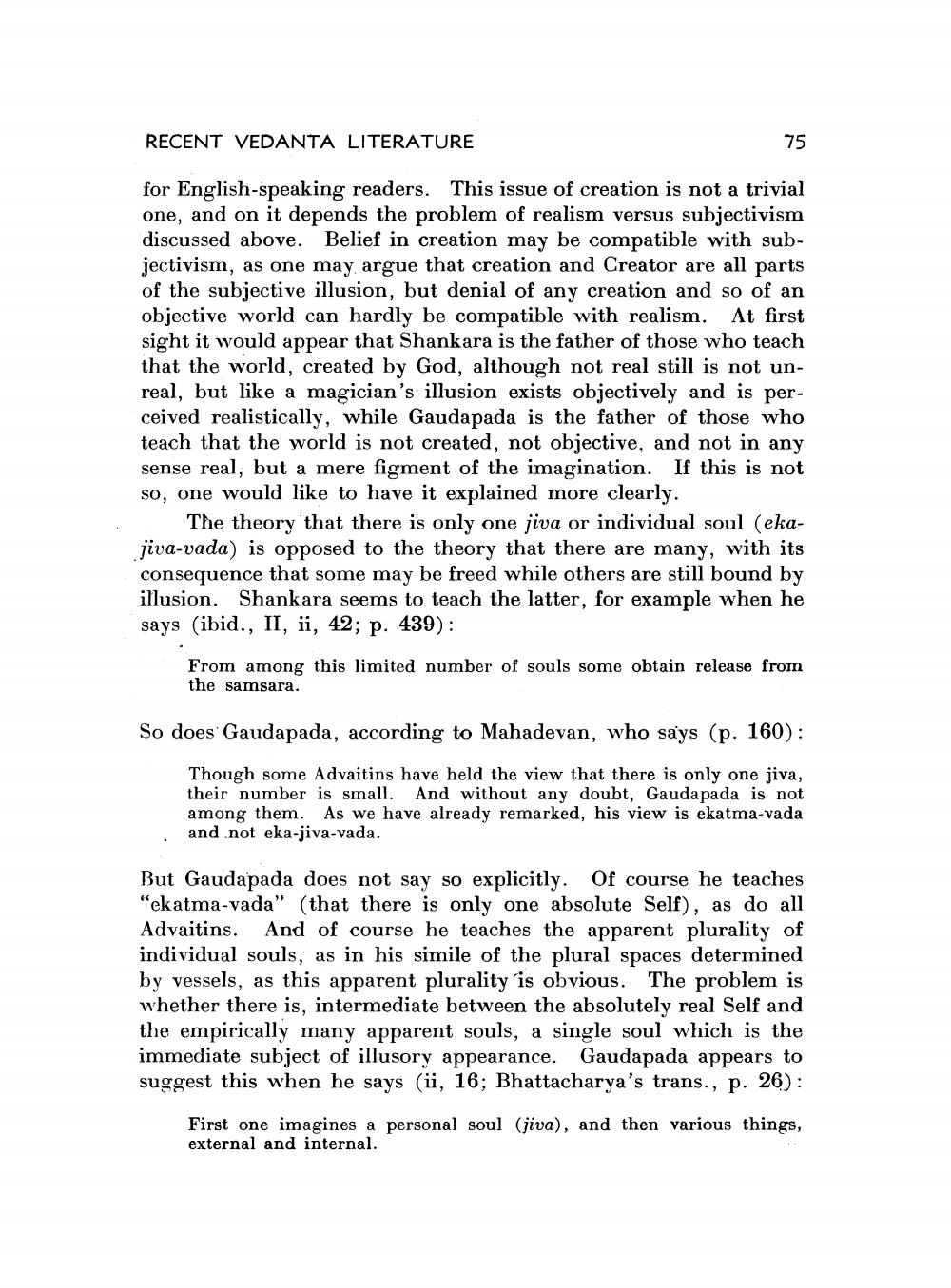Book Title: Recent Vedanta Literature Author(s): George Burch Publisher: George Burch View full book textPage 8
________________ RECENT VEDANTA LITERATURE 75 for English-speaking readers. This issue of creation is not a trivial one, and on it depends the problem of realism versus subjectivism discussed above. Belief in creation may be compatible with subjectivism, as one may argue that creation and Creator are all parts of the subjective illusion, but denial of any creation and so of an objective world can hardly be compatible with realism. At first sight it would appear that Shankara is the father of those who teach that the world, created by God, although not real still is not unreal, but like a magician's illusion exists objectively and is perceived realistically, while Gauda pada is the father of those who teach that the world is not created, not objective, and not in any sense real, but a mere figment of the imagination. If this is not so, one would like to have it explained more clearly. The theory that there is only one jiva or individual soul (ekajiva-vada) is opposed to the theory that there are many, with its consequence that some may be freed while others are still bound by illusion. Shankara seems to teach the latter, for example when he says (ibid., II, ii, 42; p. 439): From among this limited number of souls some obtain release from the samsara. So does Gaudapada, according to Mahadevan, who says (p. 160): Though some Advaitins have held the view that there is only one jiva, their number is small. And without any doubt, Gauda pada is not among them. As we have already remarked, his view is ekatma-vada and not eka-jiva-vada. But Gauda pada does not say so explicitly. Of course he teaches "ekatma-vada" (that there is only one absolute Self), as do all Advaitins. And of course he teaches the apparent plurality of individual souls, as in his simile of the plural spaces determined by vessels, as this apparent plurality is obvious. The problem is whether there is, intermediate between the absolutely real Self and the empirically many apparent souls, a single soul which is the immediate subject of illusory appearance. Gaudapada appears to suggest this when he says (ii, 16; Bhattacharya's trans., p. 26): First one imagines a personal soul (jiva), and then various things, external and internal.Page Navigation
1 ... 6 7 8 9 10 11 12 13 14 15 16 17 18 19 20 21 22 23 24 25 26 27 28 29
